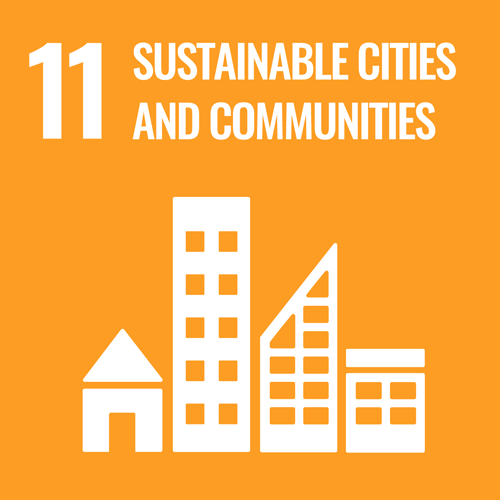Jack Aldane spoke with Mark Paris, Managing Partner, Urban Us and Managing Director of URBAN-X, which is providing investment to support urban tech start-ups. Below is an excerpted version of the exchange.
Urban Us funds urban tech companies and creates investment vehicles for such projects. How do you source and uncover such companies, and what are you looking for in terms of a business being investable?
As in all venture capital, you’re searching for start-up founders who have thought about a problem, like, let’s say, the potential tenant who does not know the condition of an apartment or the quality of a landlord before they rent. Then you want to know that the founder has a solution and a way to inform others about that solution.
One of the most important things is to assess the size of the opportunity. In the case of apartment ratings, you don’t have to think really hard to see that there’s a huge market out there. The market opportunity needs to be substantial otherwise the venture investment maths don’t work.
‘Urban tech can, despite its ultimate for-profit mantra, sneak in benefits to urban living.’ – Mark Paris, Managing Partner, Urban Us and Managing Director of URBAN-X
As many people know, the majority of early-stage start-ups should probably fail. . . . If a start-up doesn’t pass the market-size test, we cannot take the risk to invest in it.
Our second, more unique focus, after sizing the market, is to determine if the technology can improve city life. This improvement could refer to congestion, climate, equity or a host of other key indicators in what makes city life better.
RELATED: How ITU supports Smart Cities in the Asia-Pacific region and beyond
Urban tech can, despite its ultimate for-profit mantra, sneak in benefits to urban living. We, therefore, want to scan for that possibility as much as we scan for market opportunity.
What do you find to be most the difficult challenges in working with municipal governments?
Though politics and antiquated request for proposals (RFPs) can make it difficult for start-ups, I think one has to be fair to governments. Start-ups may find themselves caught in a collision of competitive forces, or unintentionally creating major changes to the original intention of infrastructure.
Nothing is more obvious than that with regards to shared mobility. Bike-share and ridesharing have both improved the last-mile experience of citizens, but both have also caused significant follow-on problems, whether it be unintended congestion or, in the case of bikes, difficulties managing bike lanes. So both sides bear some of the burden of this question.
‘Governments are by their nature risk-averse, and start-ups only grow if they test and fail again and again, so that they can learn.’
The most difficult challenges tend to be the inconsistency and longevity of sales cycles. We’ve found that, although long sales cycles that focus on one or two big cities can be really painful, they can also be really rewarding if the start-up wins the business. It’s those big payoffs that may change the trajectory of the start-up in the eyes of investors.
So, depending on the start-up use case, it may be worth the risk to focus on really large cities first.
RELATED: London’s roadmap to become the ‘world’s smartest city’
There are other more cultural elements that are fundamentally harder to bridge. Governments are by their nature risk-averse, and start-ups only grow if they test and fail again and again, so that they can learn. This is where we believe government needs to get smarter in its ability to be a start-up laboratory.
Governments should find ways to contain failure for new ideas, or define what the toleration is, while providing bigger rewards for start-ups, such as longer contracts. That way, the model becomes more of a partnership.
Having worked on Wall Street for 25 years, what attracted you to urban tech?
My work was largely dealing with municipalities, hospitals and universities in the United States, so I’ve worked with municipal governments since the beginning of my career. I understand the challenges and opportunities of the urban landscape.
‘Nothing at the early stage in a company’s life talks more to investors than traction, which is the proof that an idea has merit.’
About eight years ago, I had the opportunity to become Citibank’s Urban Innovation Head, part of which involved overseeing Citi’s venture capital investments in this space. . . . After working at a 250,000-person organisation, I was really hungry to work in a more intimate partnership and be hands-on with young start-ups.
Because Urban Us works with earlier stage start-ups, it gives me a real chance to help these teams. Now, addressing city issues and working with young teams is what I live for.
The URBAN-X programme attached to Urban Us helps start-ups prepare for initial seed financing. In what way are companies typically underprepared to meet their customers, their investors and other partners, and how do you help them overcome this?
Nothing at the early stage in a company’s life talks more to investors than traction, which is the proof that an idea has merit. Nothing, therefore, demonstrates traction like client sales. . . .
Time is the most precious commodity a start-up has. Therefore, effective time prioritisation is essential. It is better to shorten conversations, meetings, emails, or postpone them when they don’t provide strategic benefit. We focus on this capacity throughout the URBAN-X experience.
RELATED: How the private sector can help advance Smart Cities
There are a host of other areas that we address – from product-market fit, customer discovery strategies, team culture and investor pitch decks, for example. But managing time and how to communicate that time management is one of the hardest things for an entrepreneur to master.
What financial innovations in the urban tech space are you most excited about currently?
One of the great things about venture capital is that we fund very high-risk, early-stage teams with the belief that some of them could be rocket launches. In addition to investment, venture capital also provides a lot of expertise that teams need. For example, they often need to go back to fundraise in the venture capital market every 12 to 18 months.
The net result of multiple funding rounds is that the founders’ ownership is diluted more and more each time a new funding takes place. So you will see situations where a founder with 50 percent of the company early on ends up with a much lower percentage of equity by the fourth or fifth funding.
‘Through blockchain and the Internet of Things (IoT), the injection of project capital has become more possible than ever before.’
Given this and the nature of distributed technology, we are finding ways for early-stage urban tech startups to finance their projects with their end-user, whether that is government or business, using project-specific capital rather than dilutive equity capital. . . .
Urban Us is developing ways to introduce this non-dilutive project finance capital in the early-stage, urban-tech ecosystem. By linking traditional venture capital with project finance, we can help startups scale faster with less dilution to the founders.
RELATED: Can blockchain help small businesses drive growth?
Through blockchain and the Internet of Things (IoT), the injection of project capital has become more possible than ever before.
Smart urban technology is a very frenetic market where each product may inspire, yet all do not necessarily fit together in the same city never mind in multiple cities. How does one tackle the issue of scale?
First of all, start-ups need first customers when they get started. I think it’s all going to depend upon what the start-up is doing and who those first customers need to be. First, customers need to define the traction of a company at an early stage before they go back to the marketplace to get more capital.
For that reason, we like to break this question down into pieces and ask who those first customers you need are. Sometimes it’s just the first customers you can get.
‘Tackling the initial customer strategy first before scaling to other cities is really important.’
One then hopefully takes those use-cases into the investor community to describe what problem you’re solving and how you’ve already proven it with a few customers. That allows for some more significant capital for that start-up to scale on a more rapid basis, even though they may be dealing with governments, which we know have a slower sales cycle.
Tackling the initial customer strategy first before scaling to other cities is really important. For a venture investor, being able to decide on investing in one of these startups takes some real conviction of the technology’s potential, not the nature of the sales cycle. Many investors stay away from this space because of that.
RELATED: 3 striking trends shaping startups in the Middle East
One of the start-ups in our portfolio, CityMart, provides a network platform between city governments with hundreds of thousands of solutions tested all over the world. If you can see how other cities have solved problems, I think that helps scaling as well. It means you’re further up the learning curve.
In which areas do you see start-ups having the biggest impact in cities?
Mobility is the one that everyone sees as the current arms race for venture capital, whether its autonomous vehicles, shared vehicles, or battery storage. Those three forces have really moved the wheel, no pun intended, on mobility. There’s more to come in that space.
‘Machine learning is a very powerful mechanism to help start-up technologies predict and test outcomes.’
To speak of the areas that are not focused on as much, there are many, but one is real estate tech and construction technologies. We have teams that use machine learning for all sorts of applications in construction, providing greater accuracy, speed and safety.
We see a lot of opportunity in shared living, better ways to build, experience and make things, including an expanded use of robotics. The impact of all of this is timely as more and more people come back into cities. You’re seeing more congestion, more density, and I think that solutions and the growing equity issues around mobility, living and health are really important.
RELATED: 5 lessons to improve mobility in cities
Technologies in waste and water are also really exciting to us. We are reviewing water technologies that can address problems in countries that are still building up their water infrastructure or have water shortage issues, such as Cape Town, South Africa.
Weaved into all of this, machine learning is a very powerful mechanism to help start-up technologies predict and test outcomes. We have cheap sensors that generate data that is now hard for humans to comprehend. Machine learning turns this data into predictions and these predictions can then be used to act in the real world–it could be where to send a car or an inspection team or moving an actuator to open a water valve.
All sectors we work in continue to generate more data and the primary beneficiaries are the teams who can use machine learning to turn this into action that helps with everything from efficiency to safety.
The original version of this article first appeared on Cities Today. Views expressed in this article do not necessarily reflect those of ITU.


 Register here
Register here












